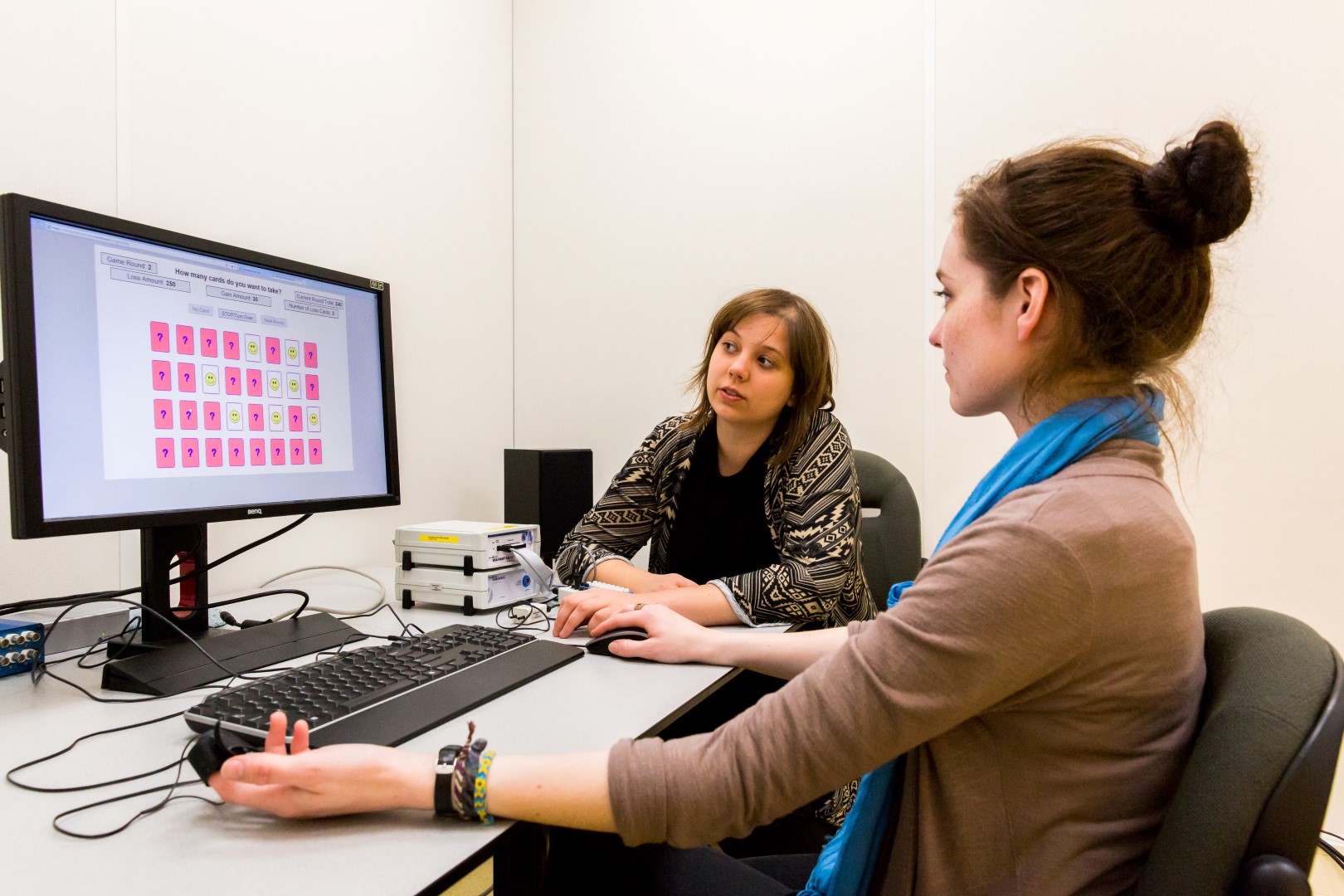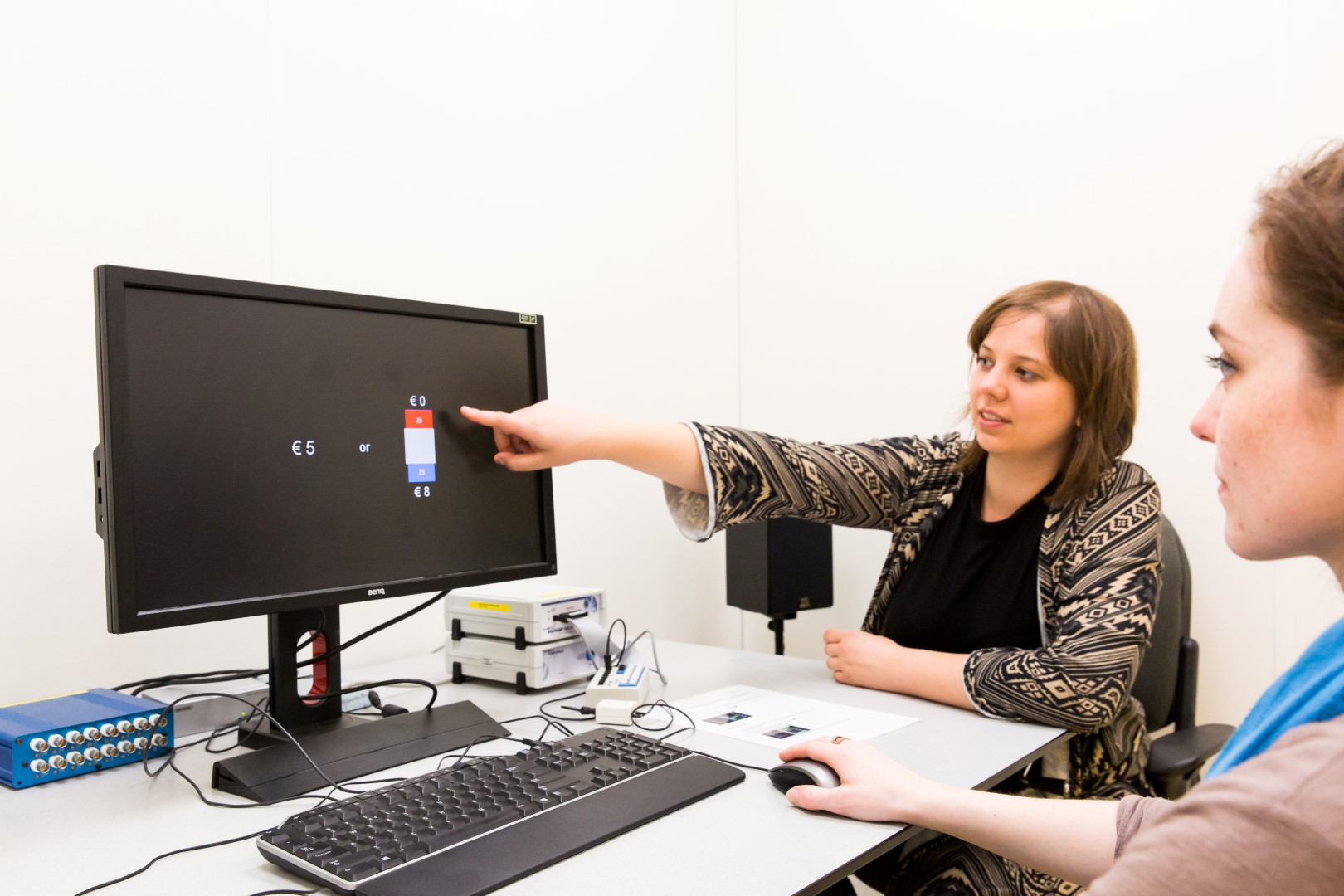In this research stream, headed by Bernd Figner, we focus on studying the psychological and neural processes in individual decision making. In particular, we are interested in understanding group and individual differences in risky choice and risk taking, intertemporal choice and impulsivity, as well as in ambiguity, i.e., when information about the possible decision outcomes is imprecise, for example information about the probability or timing of decision outcomes.
We study adaptive and maladaptive forms of such decisions and the role of different psychological and neural processes—including affective versus deliberative processes, self-control, and instrumental versus Pavlovian processes—in healthy adult populations, developing populations (with a focus on adolescence), and clinical populations. In our studies, we typically combine different methodological approaches such as sophisticated behavioral tasks (e.g., the Columbia Card Task), computational modeling, brain stimulation and brain imaging methods, as well as psychological and pharmacological interventions to triangulate our research findings and work towards converging empirical evidence.
For more detailed information, please see some concrete research examples below and go to our individual D2P2 lab page for a more complete overview and information.

Testosterone is often seen as a mainly social hormone implicated in behaviors related to power, dominance, and aggression and higher…
Read more
This project investigates the mechanisms underlying developmental and individual differences in intertemporal choices (Iris Ikink, Karin Roelofs, Bernd Figner). More…
Read more
It is widely recognized that police performance may be hindered by psychophysiological state changes during acute stress. To address the…
Read more